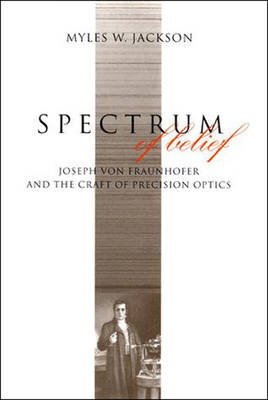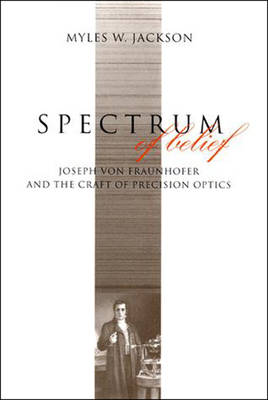
- Retrait gratuit dans votre magasin Club
- 7.000.000 titres dans notre catalogue
- Payer en toute sécurité
- Toujours un magasin près de chez vous
- Retrait gratuit dans votre magasin Club
- 7.000.0000 titres dans notre catalogue
- Payer en toute sécurité
- Toujours un magasin près de chez vous
Description
Fraunhofer came from a long line of glassmakers. Orphaned at age eleven, the young apprentice moved in with his master, the court decorative glass cutter. At age nineteen, bored with his work and angered by his master's refusal to allow him to study optical theory, Fraunhofer took a position at the Optical Institute assisting in the manufacture of achromatic lenses. Within ten years he was producing the world's finest achromatic lenses and prisms.
Housed in an old Benedictine monastery, Fraunhofer's laboratory mirrored the labor of the monks. Because of his secrecy (after his death, even those who had worked most closely with him could not achieve his success), British experimental natural philosophers were unable to reproduce his work. This secrecy, while guaranteeing his institute's monopoly, thwarted Fraunhofer's attempts to gain credibility within the scientific community, which looked down on artisanal work and its clandestine practices as an affront. The response to the ensuing rise of German optical technology sheds light on crucial social, economic, and political issues of the period, such as mechanization, patent law reform, the role of skills in both physics and society, the rise of Mechanics' Institutes, and scientific patronage. After his death, Fraunhofer's example was used in the newly united Germany to argue for the merging of scientific research and technological innovation with industrial and state support.
Spécifications
Parties prenantes
- Auteur(s) :
- Editeur:
Contenu
- Nombre de pages :
- 296
- Langue:
- Anglais
- Collection :
Caractéristiques
- EAN:
- 9780262527231
- Date de parution :
- 11-09-00
- Format:
- Livre broché
- Format numérique:
- Trade paperback (VS)
- Dimensions :
- 152 mm x 226 mm
- Poids :
- 476 g

Les avis
Nous publions uniquement les avis qui respectent les conditions requises. Consultez nos conditions pour les avis.






